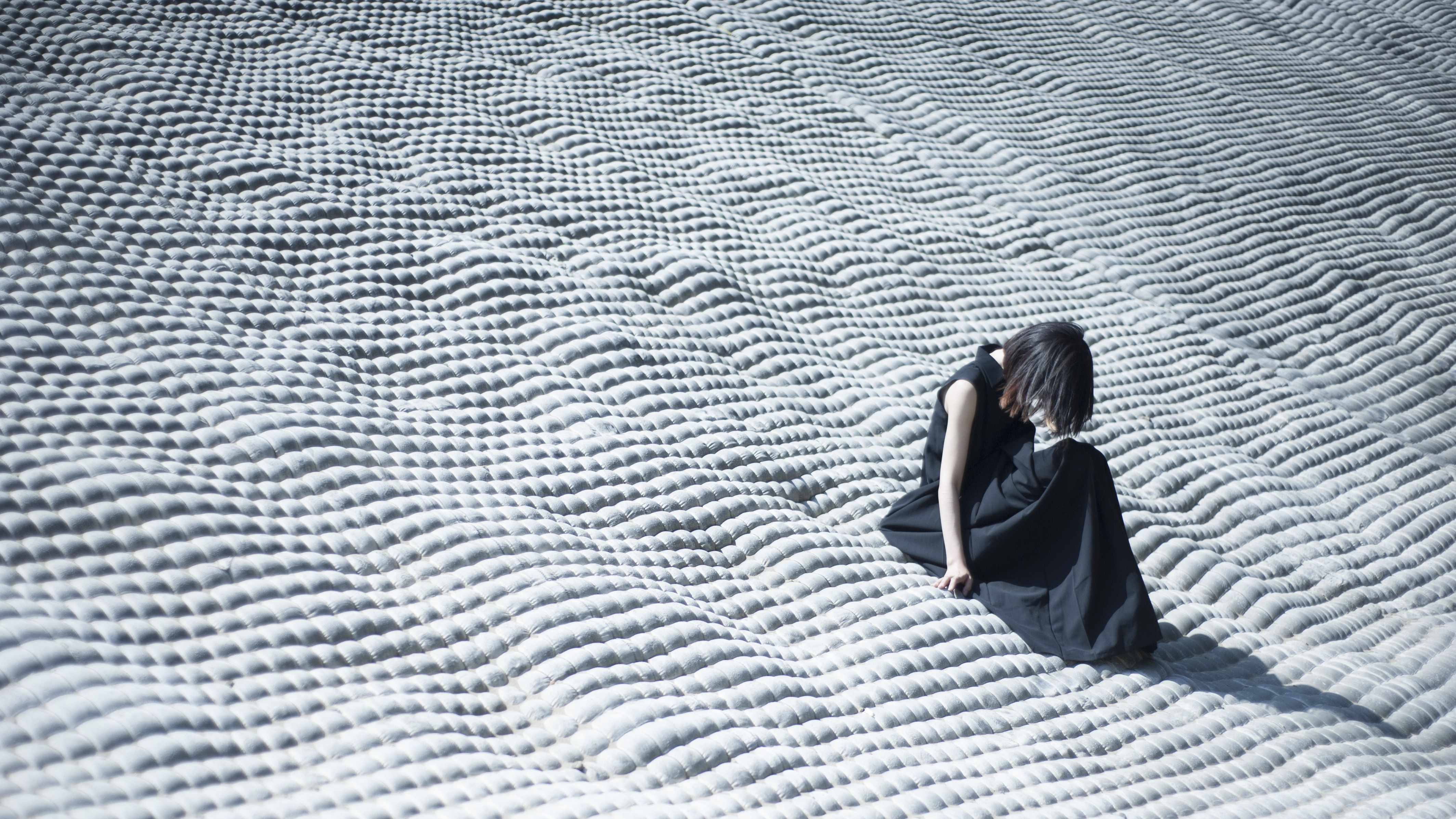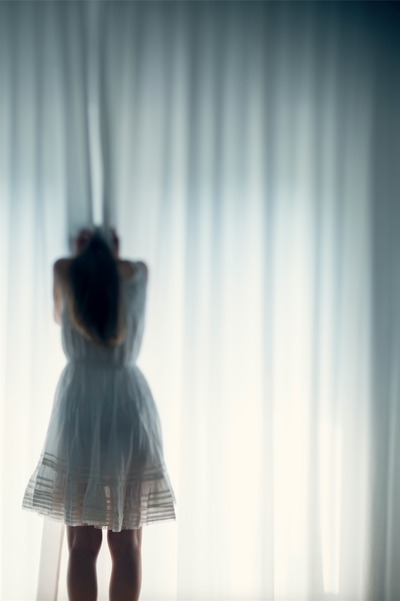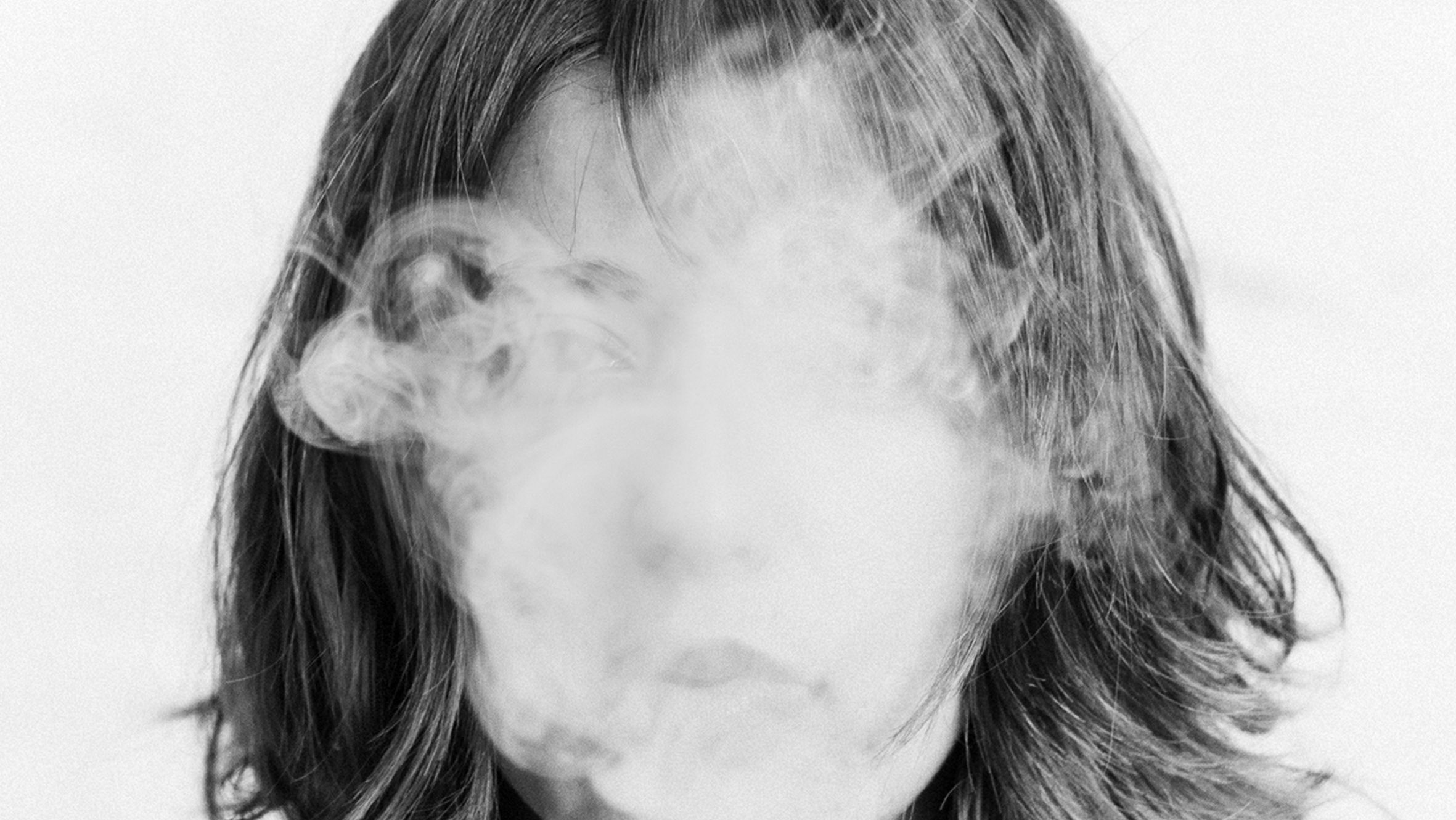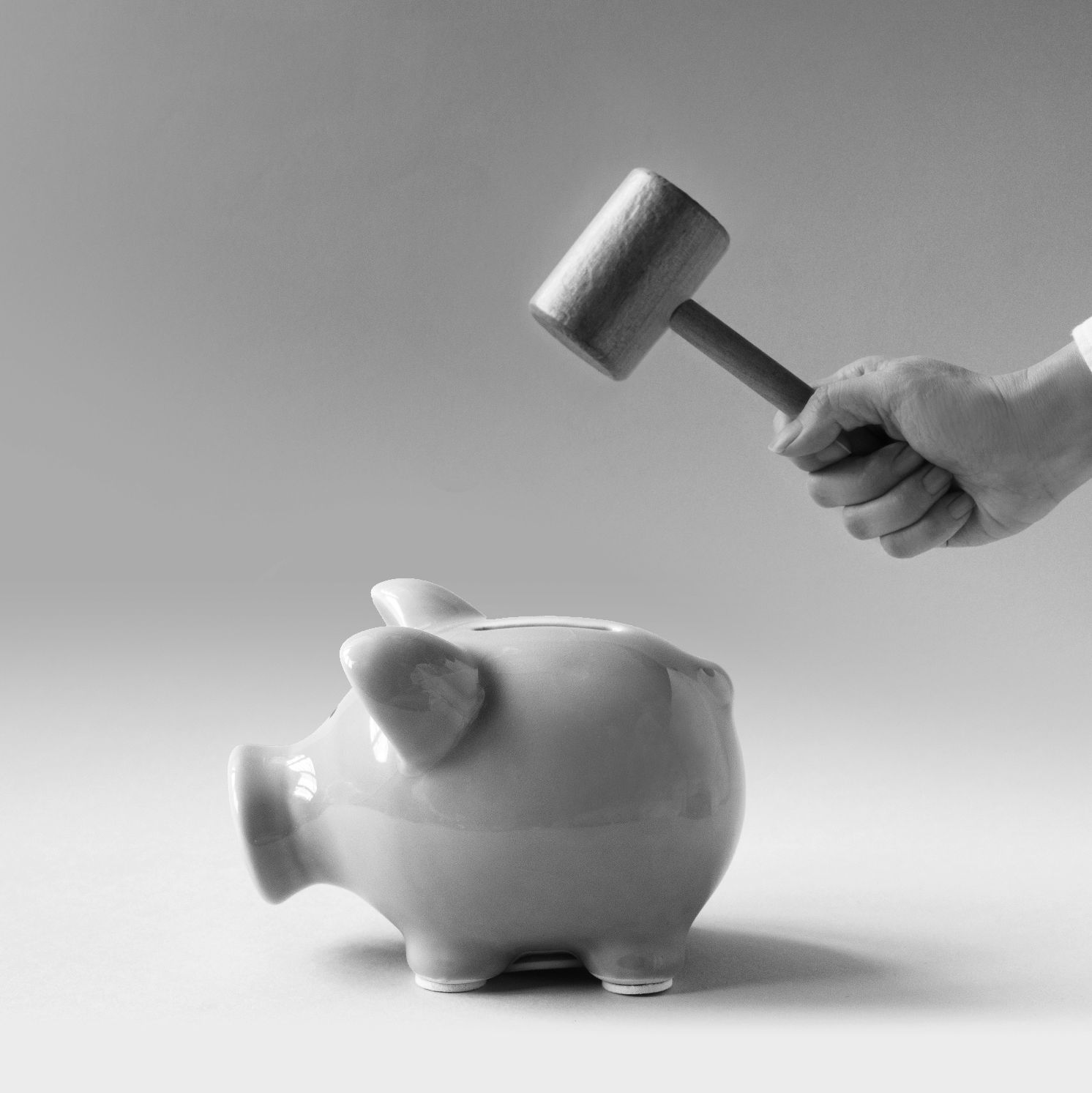Sexism Is Sending Women into Actual Clinical Depression
There's a gender gap in depression, thanks to all the gender gaps everywhere else in our lives.

Just after checking into a state-run psychiatric hospital, writer Daphne Merkin met the first of her fellow patients in the depression ward. It was a surprising encounter. The patient, who had just undergone electroconvulsive therapy, was shouting about the treatment in a shockingly aggressive manner. But Merkin wasn’t taken aback by the patient’s aggression so much as the patient’s gender: He was male.
Merkin, who struggles with depression, had been hospitalized a few times before, and—no matter where she was being treated—the depression unit tended to be overwhelmingly female. God, he’s so admirably energized, she thought of the enraged patient, while she herself was in the midst of deep, immobilizing depression. She found herself wondering if perhaps things had changed, if perhaps in the years that had passed since her last hospitalizations, a balance between the sexes with mental health issues had emerged.
Women are diagnosed with depression at nearly twice the rate of men.
But no. Men still made up less than 20 percent of her unit’s patients. “It felt a little like I was in a coven of women who had been cast aside, washed up on the shores of a psychiatric hospital,” says Merkin, whose memoir of depression, This Close to Happy, was published earlier this year.
Merkin’s observation is not solely anecdotal. According to a study released in May, women report feelings of and are diagnosed with depression at far higher rates than men, starting at an age far younger than previously thought. Dr. Rachel Salk, along with researchers from the University of Wisconsin-Madison, found that adolescent women receive depression diagnoses about three times as often as young men do. This gap narrows in the 20s and 30s, but women are labeled “clinically depressed” at nearly twice the rate of their male counterparts.

Why does this gender gap exist? “Self-blame is really endemic to Westernized women,” says Linda McMullen, a professor of psychology at the University of Saskatchewan in Canada, of the fact that Salk's research indicates that women in more gender-equitable societies (societies where women reached similar levels of education and were paid the same for the same work) reported and were diagnosed with depression more frequently, not less.
It all seems to be caught up in the complexities of being a modern woman in an allegedly equal culture—which, as we all know, isn't equal at all. McMullen notes that the depressed women she interviewed for the book she co-edited, Situating Sadness: Women and Depression in Social Context, said they felt like cultural norms implied that they should be a mothering caretaker to their partners. But they also felt they were sacrificing so much of themselves for very little: Their partners did not reciprocate, and their relationships often failed. They felt a deep discomfort putting themselves aside so completely for the sake of a romantic partner.
RELATED STORY

The resulting negative self-image can lead to a nasty self-defeating, depression-inducing circle. When women think they are not enough—not a good enough workhorse, not a good enough friend, not a good enough mother, not a good enough wife—the things they may do to "fix" the situation, like leaning on friends or seeking more social support, are the very things that may cause more depression. As Dr. Peter Kramer explains in his book Against Depression, having more close friends puts you at a greater risk for being depressed. “It turns out what looks like social support in some studies is a social burden,” Kramer notes.
Stay In The Know
Get exclusive access to fashion and beauty trends, hot-off-the-press celebrity news, and more.
Social roles clearly play a part in the depression gender gap, but it’s important to remember that depression is also a biology-based illness, one that may be caused by a chemical imbalance. Researchers are still exploring the biological reasons for the disease, but currently they believe that the brain’s neuron connections, neuron growth, and nerve circuits’ ability to function all affect depression.
“Women just have more people they care about and care for—what looks like social support can be a social burden."
Medical interventions can be helpful, and all patients should listen to the advice of their doctors. But just as a woman’s perception can impact her diagnosis, so too might it impact her ability to heal. McMullen proposes a solution beyond the Rx pad: Remembering that, as a woman, you live in a society that is oftentimes sexist and unfair can help prevent you from feeling isolated, like there's something wrong with you and you alone. “Don’t blame yourself," she says. "Examine what’s going on in your life, but not only in your immediate life." One scroll through Twitter exposes just how messed up the world is for women right now. Yes, it's all rather depressing. But it's not you, it's them.

-
 Princess Anne's Unexpected Suggestion About Mike Tindall's Nose
Princess Anne's Unexpected Suggestion About Mike Tindall's Nose"Princess Anne asked me if I'd have the surgery."
By Amy Mackelden Published
-
 Queen Elizabeth's "Disapproving" Royal Wedding Comment
Queen Elizabeth's "Disapproving" Royal Wedding CommentShe reportedly had lots of nice things to say, too.
By Amy Mackelden Published
-
 Palace Employees "Tried" to Get King Charles to "Slow Down"
Palace Employees "Tried" to Get King Charles to "Slow Down""Now he wants to do more and more and more. That's the problem."
By Amy Mackelden Published
-
 Senator Klobuchar: "Early Detection Saves Lives. It Saved Mine"
Senator Klobuchar: "Early Detection Saves Lives. It Saved Mine"Senator and breast cancer survivor Amy Klobuchar is encouraging women not to put off preventative care any longer.
By Senator Amy Klobuchar Published
-
 I'm an Egg Donor. Why Was It So Difficult for Me to Tell People That?
I'm an Egg Donor. Why Was It So Difficult for Me to Tell People That?Much like abortion, surrogacy, and IVF, becoming an egg donor was a reproductive choice that felt unfit for society’s standards of womanhood.
By Lauryn Chamberlain Published
-
 The 20 Best Probiotics to Keep Your Gut in Check
The 20 Best Probiotics to Keep Your Gut in CheckGut health = wealth.
By Julia Marzovilla Published
-
 Simone Biles Is Out of the Team Final at the Tokyo Olympics
Simone Biles Is Out of the Team Final at the Tokyo OlympicsShe withdrew from the event due to a medical issue, according to USA Gymnastics.
By Rachel Epstein Published
-
 The Truth About Thigh Gaps
The Truth About Thigh GapsWe're going to need you to stop right there.
By Kenny Thapoung Published
-
 The High Price of Living With Chronic Pain
The High Price of Living With Chronic PainThree women open up about how their conditions impact their bodies—and their wallets.
By Alice Oglethorpe Published
-
 I Used to Imagine Murdering the Men I Dated
I Used to Imagine Murdering the Men I DatedFalling in love helped me finally figure out why.
By Jessica Amento Published
-
 60 Workout Apps for Women Who Want Results (Without a Gym Membership)
60 Workout Apps for Women Who Want Results (Without a Gym Membership)Buying Guide Easy fitness plans you can follow without fear of judgment.
By Bianca Rodriguez Published